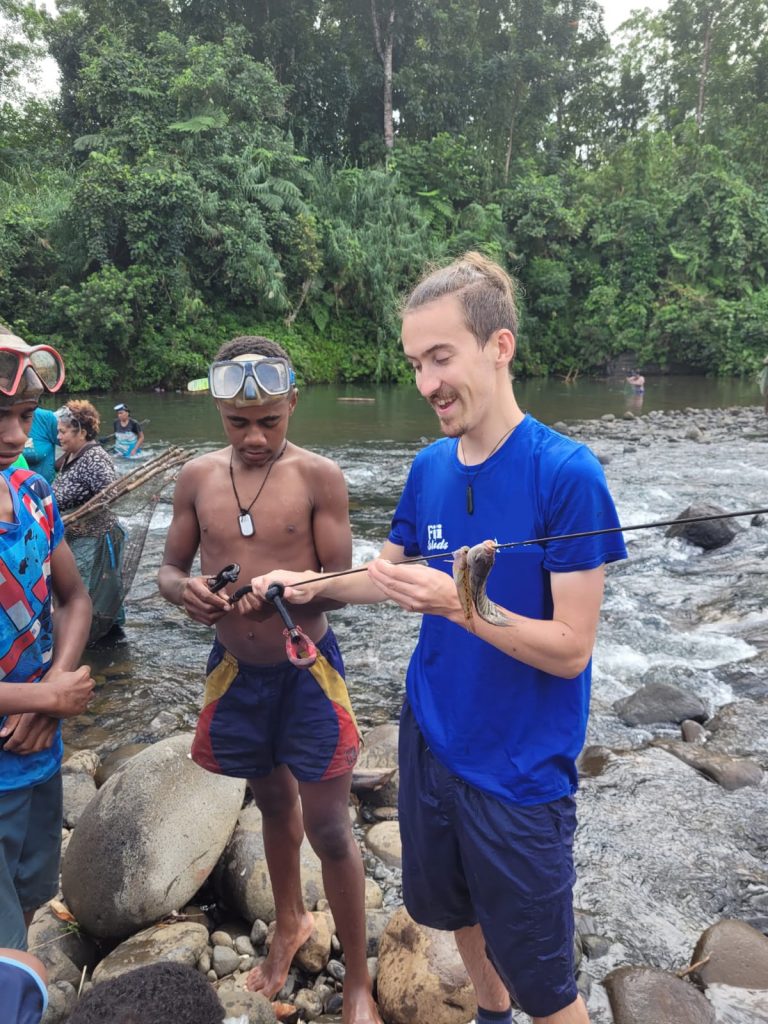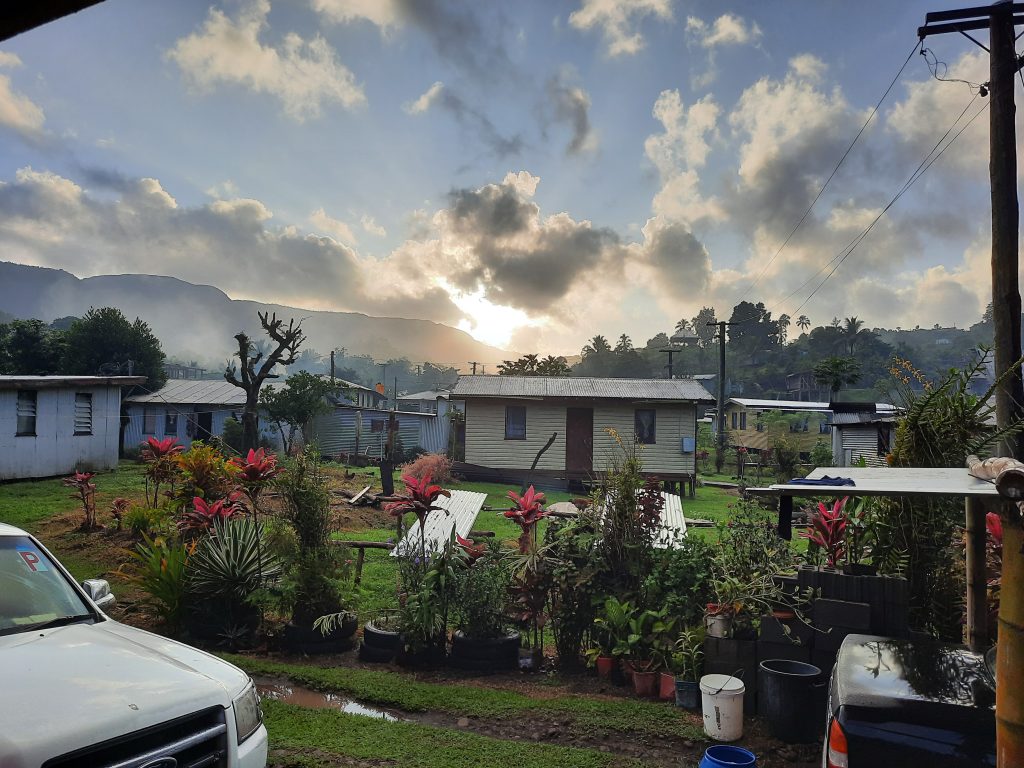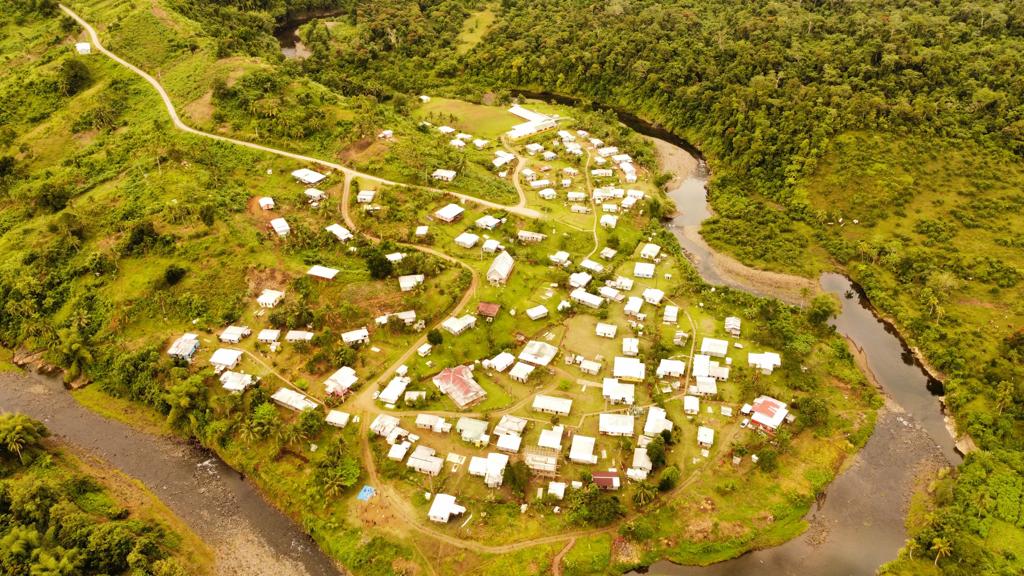

LSE International Development student Henry Whitelaw draws on his experience with a volunteering programme in the Pacific islands to ask whether ‘voluntourism’ can facilitate meaningful development. First published on the LSE International Development blog.
As students of development and keen volunteers, we are repeatedly warned of the bogeyman of ‘voluntourism’ – a vicious creature lurking beneath the well-meaning façade of voluntary humanitarian principles, which pulls in unsuspecting students and undermines the good work that the ‘real’ development practitioners are engaged in. But what exactly is voluntourism? And is such an industry – which is worth over USD $2.6 billion and sees over 1.6 million individuals volunteering every year – necessarily a negative thing for international development?
Volunteering abroad was something I had been keen on doing since well before beginning my master’s at the LSE. I was all set to take part in a voluntary “expedition” at the end of my undergrad in 2020, duly fundraising the eye-watering sums necessary to fund a project and travel halfway round the globe to an island in the Pacific Ocean. The outbreak of COVID-19 postponed all projects operating in the region and closed its borders to foreign entrants until this summer. During the interim, I began my MSc in International Development and Humanitarian Emergencies at the LSE, and gradually began to question the ethics surrounding my upcoming volunteering (rescheduled to June-July 2022). Was I actually going to be helpful to the locals? What could I, as a student, bring to the table that they didn’t have access to already? What were my own motivations for going – was I more committed to what the local community wanted, or to my own aims to build a career “working in the field” and getting a job in the Pacific?
These thoughts are reflected in much of the academic criticisms of voluntourism. Many have asserted that “volunteers are not necessarily driven by good-will and a can-do attitude, but are discerning consumers who carefully choose their field of activity and expect a fundamentally self-interested return on their investment, whether it be in the form of self-actualisation, work experience, Facebook profile picture or college reference.” Despite my similar misgivings, I decided to maintain my committed project dates, for a number of reasons – not least because the fees I had paid were non-refundable. It can be difficult, on a student budget, to take the financial hit of the moral high ground; in this case, I had not seen proof first-hand that this was an ethically compromised enterprise. I had also made plans to conduct my dissertation interviews there after the end of the project – a way of convincing myself that, even if the project realised all the generic criticisms, the community might still get something worthwhile out of my being there.

The project followed the model generally used by volunteer programmes, bringing a group of around 20 individuals together to deliver a set of project outcomes. The difference from typical volunteer programmes – what makes it ‘voluntourism’ – is the payment-for-service element: the other volunteers and I had, whether by self-funding, fundraising, or university grants, paid for the ‘experience’ of volunteering. Inexperienced university students are the primary recruits, as it offers a way to “see the world” and “give something back”, in exchange for a certificate and a useful extra on the CV. Clearly, the students seem to get more; recruitment for such projects tends to leave out the specifics of what – if any – local needs are being addressed, or even whether such ‘voluntouring’ is actually a good idea. In our case, we weren’t told until a few days before our project began – when we were already in-country – what we would actually doing, or even which village we were to be volunteering in.
This highlights an inherent manipulation by organisations of local communities within the model of voluntourism. It plays on the poverty of communities by presuming a need for voluntary action, communities’ genuine willingness to host foreigners and engage in cross-cultural learning, and – particularly when the community exists in isolated areas – their limited understanding of how such organisations might operate. More often than not, both communities and volunteers are mis-sold on the respective benefits they can gain from their projects, with communities in particular gaining little in the way of long-term sustainable benefits. And this is when such projects go to plan; when they are mismanaged and disorganised, they can represent a genuine threat to community livelihoods and their long-term development prospects.

Our project was split – half our time was to be spent learning Pacific crafts and traditions, the other half delivering sports development to the village youths. It is clear that we gained more than the village. The project delivery was mismanaged both by the implementing partner – whose employees were invariably late, misinformed, and seemed more interested in poaching impressive athletes for foreign academies than developing local sports – and by higher-ups within our own organisation who appeared similarly disorganised and unwilling to bridge the information gap. Had it not been for some excellent team leaders, the project may well have have failed to achieve anything. As volunteers, we didn’t come away with a sense that anything in the community had been developed; the village rugby pitch, for one, was in a considerably better condition before we ever turned up. Our irritation at the disorganisation of the project and realising that we weren’t exactly helping anything caused some concern among the community, as they worried that our disappointment was directed at them. We tried hard to dispel this, as our interactions with the villagers was the highlight of the project. Such cross-cultural confusion is an underappreciated negative of inexperienced volunteering; there were many things that we were just simply not aware of which might cause offence, or, in anecdotal incidents from other projects by the same implementer, result in volunteers and villagers alike being exiled from their village.
As my own experience serves to highlight, if we are to do development properly – in a way that both empowers local communities to achieve their own aims and strengthens trends elsewhere in development towards localisation and accountability – there must be a huge increase in regulation around voluntourism. This must set strict parameters on how voluntary organisations engage with volunteers and communities, especially when both groups have limited experience of development assistance and its many unanticipated effects. The concept behind voluntourism – bringing willing students to meet the development needs of foreign communities – is a sound one; but its implementation needs far more consideration and accountability than is currently in place.